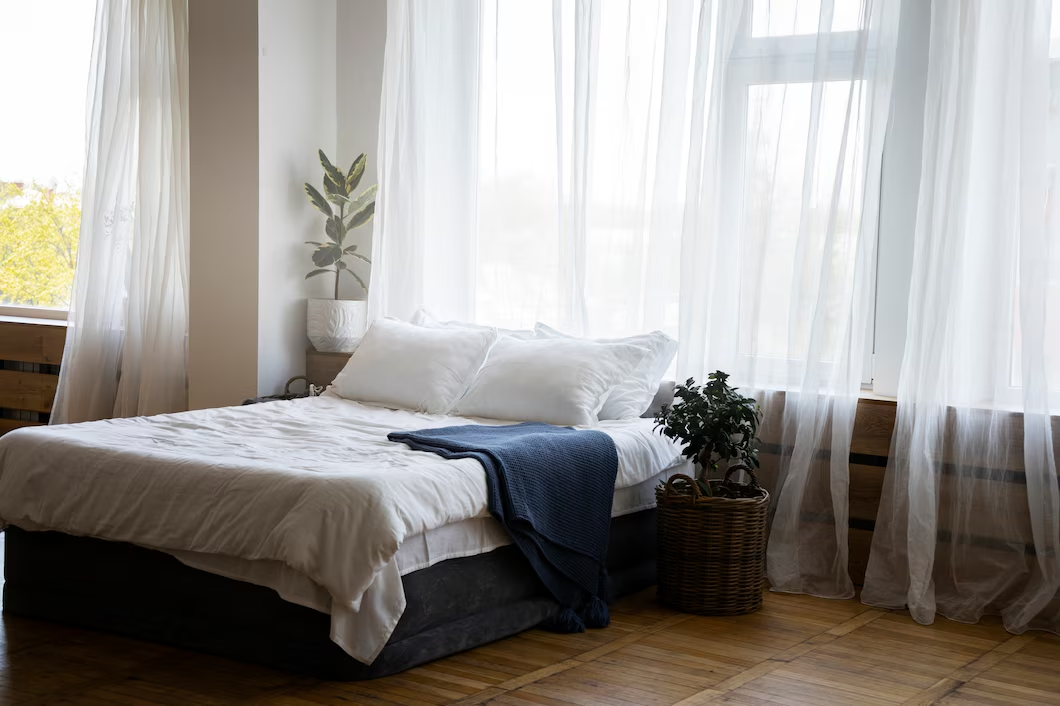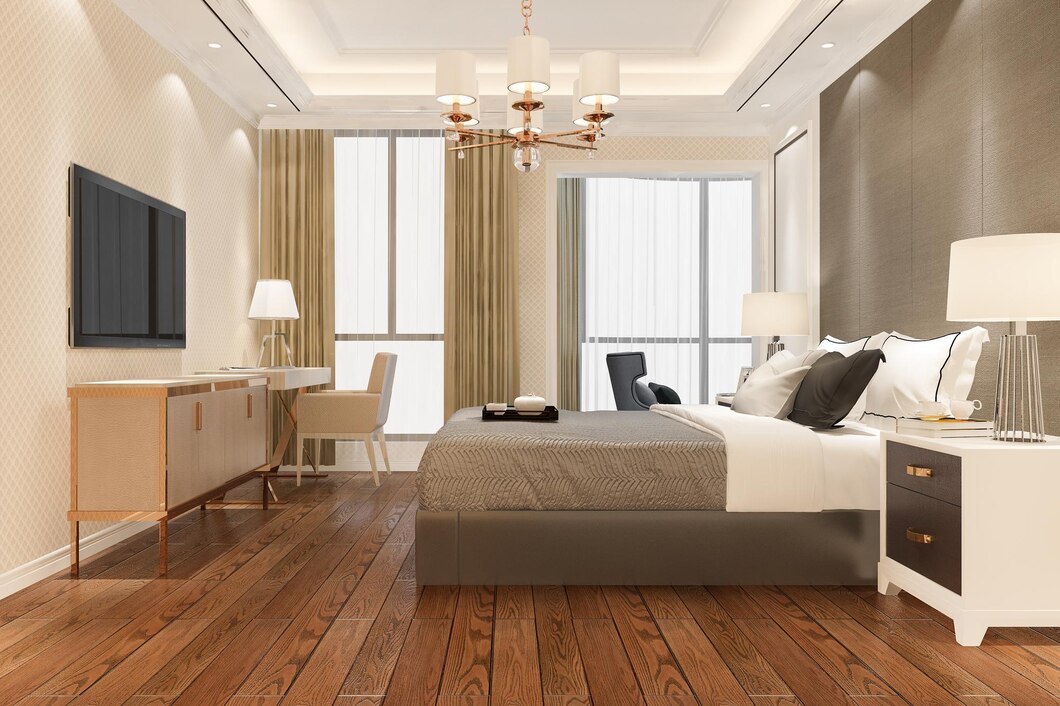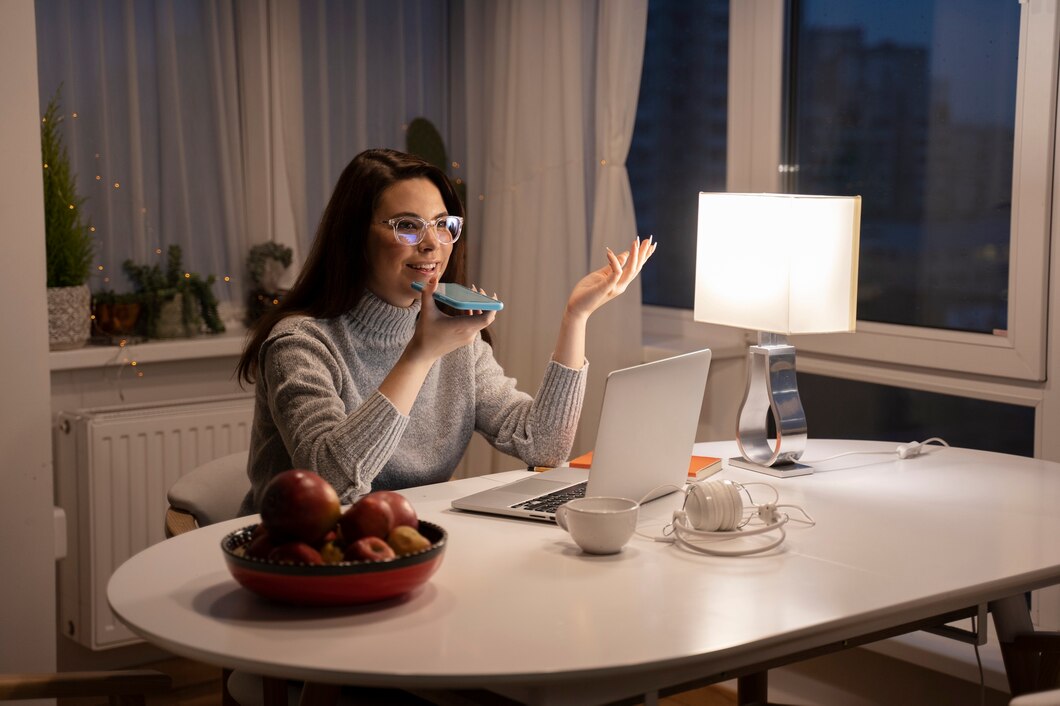How to Create a Bedroom Environment for Better Sleep
Getting a good night’s sleep is essential for health and well-being. Although some people concentrate on diet and exercise in the quest to sleep better, your sleep environment also plays a role. An optimised bedroom setup for sleep can help you fall asleep faster, sleep more soundly and wake up feeling rested. Optimising sleep conditions is about much more

Getting a good night’s sleep is essential for health and well-being. Although some people concentrate on diet and exercise in the quest to sleep better, your sleep environment also plays a role. An optimised bedroom setup for sleep can help you fall asleep faster, sleep more soundly and wake up feeling rested.
Optimising sleep conditions is about much more than a cosy mattress. Lighting, temperature, noise, and bedtime habits matter. In this guide, we will be sharing expert Night Routine tips with you and the important changes you can make in your bedroom to improve sleep naturally.
The Science Behind a Sleep-Friendly Bedroom
How Your Environment Affects Sleep
Your bedroom should be a restful sanctuary. Research shows that light, noise, and temperature can affect your sleep cycles. A good bedroom setup for sleep can help your body produce melatonin, support your circadian rhythm, and reduce disturbances that lead to restless nights.
Key Elements for the Best Sleep Conditions
- Optimal Room Temperature – A cool, steady temperature prevents night sweats and restlessness.
- Minimal Noise Disruptions – Lowering noise levels or masking sounds can help you sleep better.
- Darkness and Lighting Control – Cutting out artificial light at night boosts melatonin production.
- Comfortable Bedding and Mattress – The right mattress and pillow are essential for spinal alignment and muscle relaxation.
- Decluttered and Minimalist Space – A tidy bedroom promotes calm and relaxation before bed.
- Aromatherapy and Relaxing Scents – Scents like lavender and chamomile create a soothing atmosphere.

How to Create the Best Bedroom Setup for Sleep
1. Choosing the Right Mattress and Pillows
Your mattress and pillows are key for quality sleep. Choosing the right ones depends on your sleep position, weight, and comfort.
- Mattress Type: Memory foam moulds to your body, while hybrid or pocket-sprung options offer firmer support.
- Pillow Selection: Side sleepers benefit from firmer pillows, while back and stomach sleepers need softer ones.
- Pillow Material: Look for breathable materials like latex or memory foam for better temperature control.
- Replace Regularly: Change your mattress every 7-10 years and pillows every 1-2 years for proper support.
2. Controlling Temperature for Optimal Sleep
Temperature is crucial for achieving the best sleep conditions. The ideal bedroom temperature is between 16-18°C for a cool and comfy environment.
- Use Breathable Bedding: Choose natural materials like cotton or bamboo to help regulate heat.
- Choose the Right Duvet: Use a lighter duvet in summer and a heavier one in winter to stay comfortable.
- Keep Air Flowing: Use a fan or open windows for fresh air circulation.
- Invest in a Cooling Mattress or Gel-Infused Pillow: These help keep you cool through the night.
- Take a Warm Shower Before Bed: A warm shower can lower body temperature and promote sleepiness.
3. Reducing Noise for a Peaceful Environment
Noise can disrupt sleep cycles. Whether from traffic, a snoring partner, or other household sounds, reducing noise is key for your bedroom setup for sleep.
- Use White Noise Machines: These mask disruptive sounds and create a consistent sleep-friendly environment.
- Try Earplugs: A simple way to block out noise.
- Install Soundproof Curtains or Rugs: These absorb sound and reduce echoes.
- Relocate Noisy Appliances: Keep electronics, ticking clocks, and humming fans out of the bedroom.
4. Managing Light Exposure for Better Sleep
Light exposure is important for your sleep-wake cycle. Ensuring darkness at night can enhance melatonin production and support deeper sleep.
- Install Blackout Curtains: These block streetlights and early morning sun.
- Use Dim, Warm Lighting in the Evening: Avoid bright, white, or blue light that can suppress melatonin.
- Limit Screen Use Before Bedtime: Phones and tablets emit blue light, disrupting sleep cycles.
- Try a Sleep Mask: If it’s not dark enough, a comfortable mask can block unwanted light.

Night Routine Tips for Better Sleep
1. Establish a Consistent Bedtime Routine
A regular night routine signals your body to wind down, promoting restful sleep.
- Go to Bed at the Same Time Every Night: Consistency helps regulate your circadian rhythm.
- Create a Wind-Down Period: Spend at least 30-60 minutes on relaxing activities like reading or meditation.
- Limit Stimulants: Avoid caffeine, nicotine, and heavy meals in the evening.
- Practice Deep Breathing: Breathing exercises help reduce stress and prepare your body for sleep.
- Keep a Gratitude Journal: Writing positive thoughts can clear your mind and ease nighttime anxiety.
2. Reduce Evening Screen Time
Screens emit blue light that interferes with melatonin production. Adjusting your screen habits is a vital night routine tip for better sleep.
- Turn Off Devices at Least an Hour Before Bed.
- Enable Blue Light Filters on Screens if you must use them.
- Engage in Screen-Free Activities like journaling, light stretching, or calming music.
- Replace Phone Alarms with Traditional Clocks to cut down on screen usage at night.
3. Introduce Relaxation Techniques
Adding relaxation practices can calm your nervous system and promote deeper sleep.
- Meditation and Mindfulness: Guided meditation or breathing exercises can ease anxiety before bed.
- Aromatherapy: Scents like lavender, chamomile, or sandalwood can help you relax.
- Gentle Stretching or Yoga: Simple stretches relieve muscle tension and improve circulation before sleep.
- Herbal Teas for Relaxation: Teas like chamomile, valerian root, or peppermint can calm your body and prepare you for rest.

Common Mistakes to Avoid in Your Bedroom Setup for Sleep
Even with the best sleep conditions, some habits can hurt your rest.
- Using Bright LED Lighting: Choose warm-toned bulbs instead.
- Keeping Work or Exercise Equipment in the Bedroom: This can create a stressful environment.
- Sleeping in a Cluttered Space: A messy room can increase stress and make it hard to unwind.
- Leaving Electronics on Standby Mode: Even small LED lights can disrupt sleep.
- Not Prioritising Comfort: Invest in a good mattress and pillows for spinal alignment and comfort.
- Eating Heavy or Spicy Meals Before Bed: Indigestion can disrupt sleep quality.
Conclusion
Sleeping well is not just a product of a bedtime routine. It takes a comfortable bedroom that encourages relaxation for sleep. You can also create an optimal sleep environment by minimizing opportunities for sleep disruption—temperature, noise, light, etc.
In addition, adhering to guidelines for sleep hygiene, by minimizing screen exposure and engaging in relaxation practices, will improve the quality of your sleep. Whether you experience occasional restlessness or suffer from chronic sleep issues, these changes can dramatically benefit your well-being.
Start today by assessing your bedroom and making changes that create the perfect atmosphere for deep, restorative sleep.